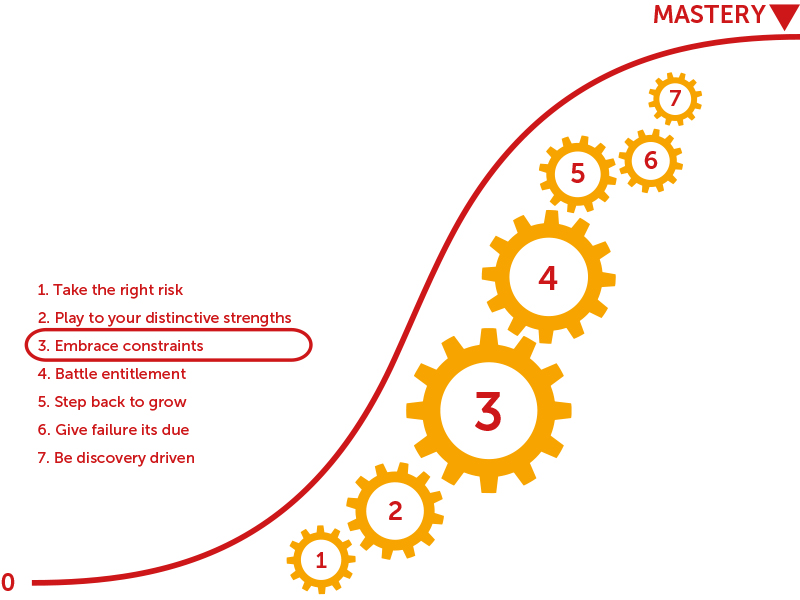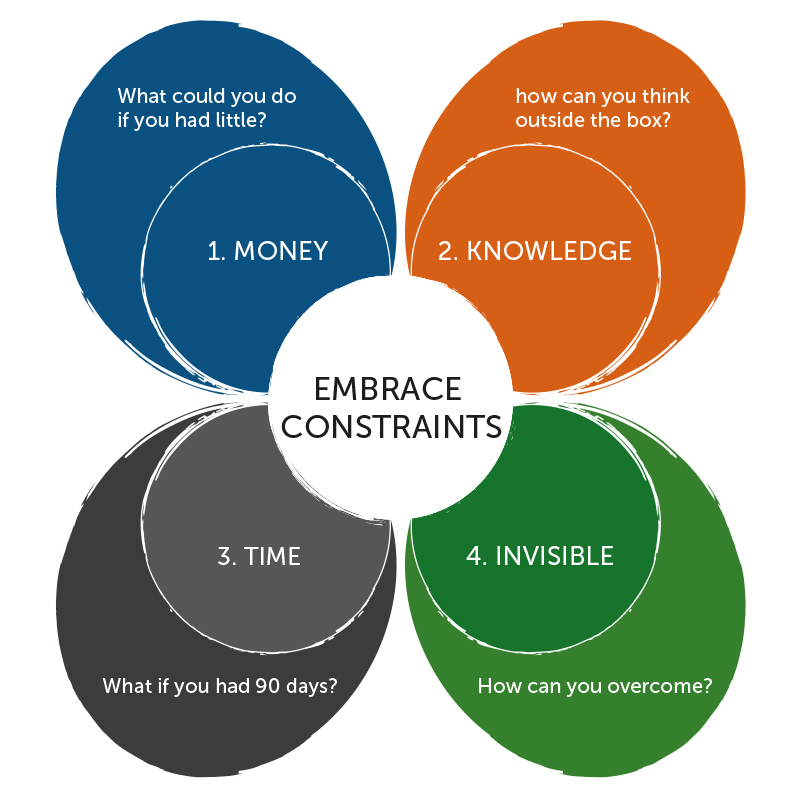Embrace Constraints
Last week we looked at the second personal transformer: distinctive strengths
This week we are going to delve into the third element: Constraints

It feels counter-intuitive. But nothing could be further from the truth when it comes to pursuing a new challenge. Constraints offer structure that can liberate us from the chaos and disorder of entropy.
Not only are constraints theoretically good, as a practical matter, they are unavoidable. Did you know for example, that many of the iconic scenes in Jaws came about because of a multifunctioning mechanical shark? The original screenplay called for numerous scenes depicting the shark approaching its prey, knifing through the water and attacking its victims.

The mechanical shark was not up to the task, frustrating Steven Spielberg’s original vision for the film. Over budget and behind schedule, Spielberg decided to shoot those scenes from the shark’s point of view, trusting that the cinematography, intense music, and viewer’s imaginations would evoke the heart pounding fear he was after. Jaws swam its way to critical acclaim and box office success.

Of course we all need at least some resources to get going. You can’t bootstrap without straps or boots. Scarcity imposes a cognitive tax on our brains and we have no excess band-with to even consider hopping on a new growth curve.
But too many resources can become a snare. According to organizational psychologist Adam Grant, increasing resources enhances our ability to make a go of a business or project, but there’s an inflection point at which too much money or time or even buy in actually diminishes our ability. We can counter this by imposing constraints, or making the most of those already imposed on us. Here are several types to consider:

One common constraint is money. And that’s a good thing. The lack of money makes business owners impatient for profits, and makes individuals hungry for discernible progress. In 2017, Entrepreneur magazine compiled a list of the five hundred fastest-growing companies in the USA. I was intrigued by the various ways these companies had funded their growth, rather taking outside cash. Only 18% had access to bank loans, 8% were funded by private investors, and 3.5% received funding from VCs: as many as 72% of these successful businesses were pulling themselves up by their bootstraps. I believe these companies were successful not in spite of, but because of, their constraints. A shortage of money is a powerful incentive for ensuring you have the right business model.

A lack of experience or knowledge about a particular aspect of a business can be a restriction. But this can also have its advantages. A shortage of knowledge about, say, a particular process, can lead you to think outside the box and produce a novel solution. It is often said we ‘teach what we need to learn’.

And a shortage of available time can force you to find others who are better suited to certain tasks or have the time to help you. When I was back at CUB I was asked to run a project where the team had to launch a beer in less than 90 days. Because the whole business knew of the challenge, everyone ‘pitched in’, silos were dropped and we launched Pure Blonde in 76 days.

While some constraints are fairly visible, like not having enough time or money, some are less so – the demons of addiction, insecurity, depression and illness. Feeling insecure might drive your determination to push forward with a new challenge. Revealing your vulnerabilities can expose yourself to people who you may never have been aligned to.

Here’s what’s important: when resources are at a minimum, successful people dig deep to discover an embarrassment of riches right under their feet and a plumb line to distinctive strengths. They are also more likely to play where others aren’t playing – because other doors are closed – consequently taking on the less risky market risk. Constraints invite all of us to make choices and to own those choices, a critical developmental milestone without which we cannot scale and jump to new curves.

